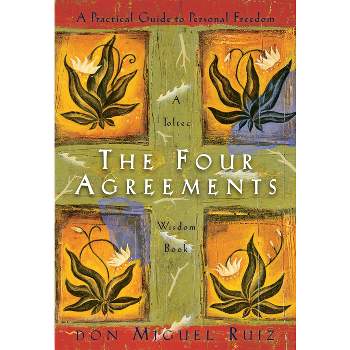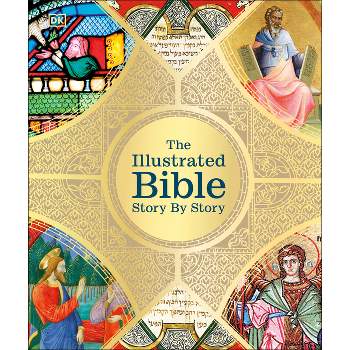Sponsored
Becoming American in Creole New Orleans, 1896-1949 - by Darryl Barthé (Hardcover)

About this item
Highlights
- Extensive scholarship has emerged within the last twenty-five years on the role of Louisiana Creoles in the eighteenth and early nineteenth centuries, yet academic work on the history of Creoles in New Orleans after the Civil War and into the twentieth century remains sparse.
- About the Author: Darryl Barthé Jr. is a writer and researcher who has taught courses in history and American politics at Berkeley College in Manhattan, the University of New Orleans, the University of Sussex in Brighton, the University of Amsterdam, and the University of Leiden.
- 232 Pages
- History, United States
Description
About the Book
"'Becoming American in Creole New Orleans, 1896-1949' picks up the story of New Orleans' Creole community where Caryn Cossâe Bell ends her highly-regarded 'Revolution, Romanticism, and the Afro-Creole Protest Tradition in Louisiana, 1718-1868' (LSU Press, 1997). Using Bell's work as a starting point, Darryl Barthâe moves the history of New Orleans' Creole community forward, suggesting that the process of 'becoming American' for them occurred due to encounters with Anglo-American modernism in the form of voluntary associations and social sodalities. That process also occurred in both public and parochial schools, where Creole linguistic distinctiveness faded over the twentieth century because of 'English-only' education. Barthâe argues that despite the fact of ethnic repression, the transition from Creole identity to American identity was largely voluntary as Creoles embraced the economic opportunities afforded to them through learning English, not the least of which was the ability to emigrate from Louisiana to other states. Indeed, 'becoming American' entailed Creoles adopting a distinctly American language of race and caste, passing as white people or, in an act of indigenous and Francophone erasure, as black people. Before that, they existed in between color lines that recognized them as a group separate from Europeans, Africans, and Amerindians, even though they often shared kinship ties to people from all of those groups. Scholars such as Rebecca Scott, Gwendolyn Midlo Hall, and Caryn Cossâe Bell have done much in the last twenty-five years to investigate the role of Louisiana Creoles in the eighteenth and nineteenth centuries, yet none has dedicated extensive study to the role of Creoles after the Civil War. Barthâe's study picks up where these scholars left off by analyzing the role that family ties, institutional associations, the erosion of linguistic identity through English-only education, and the American racialized caste order (exemplified in the legal regime of Jim Crow), played in shaping Creole identity in the period between the end of the nineteenth century and the end of World War II. 'Becoming American in Creole New Orleans, 1896-1949' is a critical examination of the interplay of Creolization and Americanization, social processes that often worked in opposition to one another throughout the nineteenth century, and that would continue to frame the limits of Creole identity and cultural expression in New Orleans until the mid-twentieth century. As such, it offers intersectional engagement with subjects that have historically fallen under the purview of sociology, anthropology, and critical theory, including discourses on whiteness, mâetissage/mâetisajâe, and critical mixed-race theory"--Book Synopsis
Extensive scholarship has emerged within the last twenty-five years on the role of Louisiana Creoles in the eighteenth and early nineteenth centuries, yet academic work on the history of Creoles in New Orleans after the Civil War and into the twentieth century remains sparse. Darryl Barthé Jr.'s Becoming American in Creole New Orleans moves the history of New Orleans' Creole community forward, documenting the process of "becoming American" through Creoles' encounters with Anglo-American modernism. Barthé tracks this ethnic transformation through an interrogation of New Orleans's voluntary associations and social sodalities, as well as its public and parochial schools, where Creole linguistic distinctiveness faded over the twentieth century because of English-only education and the establishment of Anglo-American economic hegemony.
Barthé argues that despite the existence of ethnic repression, the transition from Creole to American identity was largely voluntary as Creoles embraced the economic opportunities afforded to them through learning English. "Becoming American" entailed the adoption of a distinctly American language and a distinctly American racialized caste system. Navigating that caste system was always tricky for Creoles, who had existed in between French and Spanish color lines that recognized them as a group separate from Europeans, Africans, and Amerindians even though they often shared kinship ties with all of these groups. Creoles responded to the pressures associated with the demands of the American caste system by passing as white people (completely or situationally) or, more often, redefining themselves as Blacks. Becoming American in Creole New Orleans offers a critical comparative analysis of "Creolization" and "Americanization," social processes that often worked in opposition to each another during the nineteenth century and that would continue to frame the limits of Creole identity and cultural expression in New Orleans until the mid-twentieth century. As such, it offers intersectional engagement with subjects that have historically fallen under the purview of sociology, anthropology, and critical theory, including discourses on whiteness, métissage/métisajé, and critical mixed-race theory.Review Quotes
"A useful and concise book that deserves wide attention, it has much to offer scholars interested in how groups previously perceived as nonwhite, assimilated and were assimilated as Americans. . . . Barthé effectively synthesizes the vast literature concerning the collision of cultures Louisiana."--Journal of Southern History
About the Author
Darryl Barthé Jr. is a writer and researcher who has taught courses in history and American politics at Berkeley College in Manhattan, the University of New Orleans, the University of Sussex in Brighton, the University of Amsterdam, and the University of Leiden. He is currently a lecturer in history at Dartmouth.










